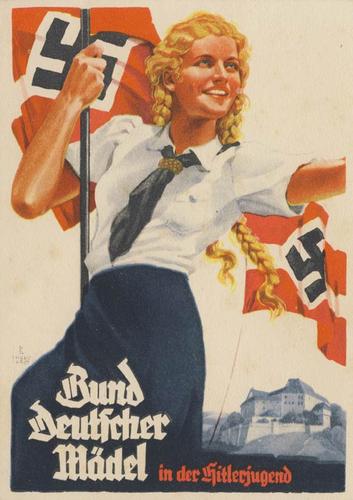Essai Sur L’Inégalité des Races Humaines
“We (Wagner and Cosima) have done nothing but talk about you and your Essay since noon, when my husband came to tell me of the pleasure and interest he has found in reading chapter thirteen, which has absorbed him since he began it. Parsifal has been cornered into reading your books!! I am not able to express how much we love and admire this masterpiece…”
Letter of Cosima to Gobineau of March 27, 1881
The Essai Sur L’Inégalité des Races Humaines (Essay on the Inequality of Human Races), of which only the first volume is available in English, is a book published in 1853 and 1855 by the French philosopher Joseph Arthur de Gobineau. It is considered the initial work of racialist philosophy. Below I reproduce an abridged translation of the introduction by Adriano Romualdi.
There are books that act on the reality of many of the political events and, out of the narrow circle of the discussion, become a powerful idea, myth and blood supplying historical processes. The most typical is undoubtedly Marx’s Capital, a historical-economic study that has become religious dogma, battle gun and gospel. To these books belongs the Essay on the Inequality of Human Races of Count Gobineau, ignored during the time the author lived but released in Germany after his death.
Arthur de Gobineau was born in Ville d’Avray in 1816 to a family of ancient Norman origin. Shortly before his death, in his Histoire d’Ottar Jara he would relive the events of the Viking conqueror that reached the coast of France, giving rise to his family. Gobineau’s father was a captain in the Royal Guard of Charles X. After the revolution of 1830 he departed to live in Britain while the son went to study in Switzerland. There Gobineau learned German and peered into the vast prospects opened by Germanic philology in those years. Since Friedrich Schlegel in his Ueber die Sprache und Weisheit der Inder taught affinity between European languages and Sanskrit he assumed an Aryan migration from Asia to Europe. In 1816, Bopp, with his Greek grammar, compared Sanskrit, Persian, Greek, Latin and founded Indo-European philology. Meanwhile, the Brothers Grimm rediscovered Edda and Germanic poetry, reviving the old heroism and primordial mythology while Kart O. Müller found in the Dorians (Die Dorier, 1824) the Nordic soul of ancient Greece. Thus Gobineau was familiar from his adolescence with a world that European culture was slowly assimilating.
In 1834 Gobineau went to Paris. He was not rich and tried to steer through as a writer and journalist. Of his literary works, many pages of Le Prisionnier Chancheux, Ternote, Mademoiselle Irnois, Les Aventures de Nicolas Belavoir and E’Abbaye of Thyphanes have withstood the erosion of time.
An article in the Revue de deux Mondes put him in touch with Alexis de Tocqueville, the famous author of Democracy in America, also of old Norman lineage. This friendship joined them through a lifetime despite their strong differences: Tocqueville, the aristocrat, resigned with melancholy by accepting democracy as a reality of the modern world while Gobineau, another aristocrat, rebelled and identified civilization with the work of a master race.
Tocqueville was appointed Foreign Minister and called his friend as his chief of staff. On the eve of the Napoleonic coup Tocqueville resigned but Gobineau put on a brave face to the Caesarism. He entered diplomacy and was the first secretary to take the delegation of Bern. It was in Berne where he wrote the Essai Sur L’Inégalité des Races Humaines. The first two volumes appeared in 1853, and more in 1855.
The book incorporates the movements of the great discovery of the Indo-European unity, i.e., a large extended Aryan family from Iceland to India. The Latin word pater, the Gothic fadar, the Greek patér and the Sanskrit derivations are revealed as originating from a single word. But if there has been a primary language of which several languages have branched, there must be a major lineage that existed, moving from its original home, and spread this language in the vast space between Scandinavia and the Ganges. It was the people that named themselves Aryans, a term with which the rulers are referred to themselves as opposed to the natives of the conquered lands (compare the Persian and the Sanskrit for arya = noble, pure; the Greek àristos = best , the Latin herus = owner, the soldierly Germanic Ehre = honor).
This is where Gobineau’s reasoning is channeled, mobilizing for his thesis ancient Indian texts revealing these prehistoric Aryans—tall, blond, with blue eyes—piercing into India, Persia, Greece, and Italy to make the great ancient civilizations flourish. Every civilization comes from an Aryan conquest, from the organization imposed by an elite of Nordic lords over a mass population.
Comparing each of the three great racial families the superiority of the Aryan appears to us evident. “If his [the black man’s] mental faculties are dull or even non-existent”—writes Gobineau—“he often has an intensity of desire, and so of will, which may be called terrible. Consequently, the black race is an intensely sensual, emotional radically race, but lacks of will and clarity of the organizer.” The yellow race stands before the black but it differs from the true creative will. Here we also have a race of second order, a kind infinitely less vulgar than the black but that lacks audacity, toughness and that sharp, heroic intelligence expressed in the gracile Aryan face. Civilization is thus a legacy of blood and is lost with the melting pot of blood. This is the explanation that Gobineau offers us about the tragedy of world history.
Gobineau’s key concept is degeneration, in the proper sense of the word, which is expressed in the growing apart from one’s own original type (the Germans would speak of Entnordung or denordization). Ancient peoples have disappeared because they have lost their Nordic integrity, and this can occur to modern man as well. “If the empire of Darius had, at the battle of Arbela, been able to fill its ranks with Persians, that is to say with real Aryans; if the Romans of the later Empire had had a Senate and an army of the same stock as that which existed at the time of the Fabii, their dominion would never have come to an end.”
The fate that overwhelmed ancient cultures also threatens us. The democratization of Europe, which began with the French Revolution, represents the revolt of the servile masses with their hedonistic and pacifist values against the heroic ideals of Nordic aristocracies of Germanic origin. Equality, that for a time was just a myth, threatens to become reality in the infernal cauldron where the superior mixes with the inferior and what is noble is bogged down into the ignoble.
If today the Essai Sur L’Inégalité des Races Humaines appears aged in many features, it retains a substantial validity. Gobineau has the great merit of having first addressed the problem of the crisis of civilization in general and the West in particular. In a century stunned by the commoner myth of progress, he dared to proclaim the fatal decline of every culture and the senile and crepuscular nature of the citizens of a rationalist civilization. Without Gobineau’s work, without the serious, solemn chiming bumps in the prelude of his Essai, all of modern literature about crises by Spengler, Huizinga and Evola is unimaginable.
Gobineau’s great work on the inequality of the races was completed, but the French culture did not take notice. Tocqueville tried to comfort Gobineau prophesying that his book would be introduced into France from Germany.
Gobineau died suddenly in Turin in October 1882. Nobody seemed to notice his disappearance. It was the Germans who valorized him. Wagner opened its columns of the Bayreuther Blätter; Hans von Wolzogen, Ludwig Schemann and Houston Stewart Chamberlain announced his work. It was Ludwig Schemann who founded the cult of Gobineau by instituting an archive near the University of Strasbourg, then in Germany. In 1896 Schemann founded the Gobineau-Vereinigung, which would spread Gobineauism throughout Germany. In 1914 Schemann had an influential network of friends and protectors and the Kaiser himself subsidized it.
On the trail of the work of Gobineau, racialism was born: Vacher de Lapouge, Penka, Pösche, Wilser, Woltmann, H. S. Chamberlain and after the war Rosenberg, Hans Günther and Clauss retook Gobineaunian intuitions and amplified them with a vast doctrinal body. In 1933 National Socialism, assuming power in Germany, officially recognized the ideology of race. Thus what Wittgenstein had prophesied about Gobineau was fulfilled: “You say you are a man of the past, but in reality you are a man of the future.”









